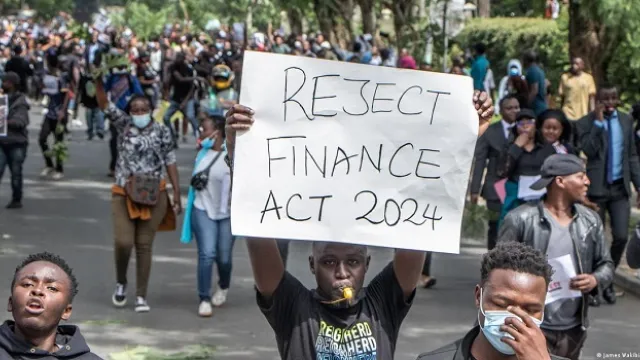Politics, high interest rates key threats to businesses—CEOs

Politics, high interest rates key threats to businesses—CEOs
Business disruptions attributable to political undercurrents in Kenya are projected to continue constraining trade in the coming year, Chief Executives Officers in the country have reported.
In a survey carried out by the Central Bank ahead of this month's Monetary Policy Committee meeting, over 1000 CEOs in Kenya cited the cost of doing business, regulations, and high-interest regime as key factors that are likely to hit businesses in the next 12 months.
The captains of industry are equally projecting subdued consumer demand, citing lower disposable income that continues to pose a threat to their business growth prospects.
CBK survey states that business activity in Kenya dipped in the three months to September compared to the second quarter "largely on account of disruptions arising from political disturbances."
Diversification of operations
"Firms will employ strategies such as managing costs and risks, diversification of operations, and lobbying with relevant stakeholders in order to manage their constraining factors," CBK's market perceptions survey states in part.
CBK's survey targeted CEOs of over 1000 private sector firms including construction, mining and energy, security, and media through questionnaires administered via a direct online survey.
Overall, however, the survey shows CEOs have expressed improved optimism for the Kenyan economy, driven by a stable macroeconomic environment due to lower inflation, stability of the shilling, and favourable weather.
In June and July, business activities decreased significantly owing to public protests over the signing of Finance Bill 2024 as wananchi demanded shelving of the contentious tax law.
Sectoral growth prospects are largely driven by sector-specific growth strategies, opportunities, and seasonality factors.
For instance, players in the tourism industry expect to continue experiencing recovery post the Covid-19 economic fallout. In the next 12 months, CEOs in the tourism and hospitality sector said growth will largely be driven by seasonality factors such as higher visitor numbers during the peak season which runs until February 2025, and the festive season.
"However, sector players reported elevated levies and taxes as a major factor constraining the sector performance," CBK said.
At the same time, Kenya's agriculture industry is expected to perform better in the next one year on account of favourable weather conditions. CEOs of companies in the agriculture sector value chain reported rising demand, especially in the export markets.
Read also: CBK cuts key rate to stem the tide of loan defaults
Agriculture hit by cash crunch
Access to capital, however, remains one of the pain points for players in the agriculture industry with CEOs noting that they are experiencing "difficulties in accessing the finance required to support activity."
Exporters shipping farm produce to overseas markets also cited "limited air freight capacity as well as supply chain disruptions," noting that these factors are negatively impacting the quality of the perishable products transported via the sea.
"However, limited access to financing to facilitate activity and supply chain challenges are constraining factors. Moreover, sector players reported excessive regulation by the national and county governments, which has the potential of hindering activity," the report explains in part.
In the ICT industry, CEOs reported continued growth citing opportunities arising from the government's digitalization projects that are cutting across industries. For players in the education sector, CEOs noted that the country is experiencing increased demand for quality educational products, and digitalization of the sector is equally giving rise to new business opportunities.
Kenya's education sector is, however, plagued by incessant labour unrests and student strikes, a double whammy that could serve as a body blow to the otherwise good prospects, the survey noted.
Loan defaults grip the finance sector
In the finance sector, bankers are grappling with " loan defaults" that are increasingly posing a threat to the otherwise good opportunities presented by increased demand for financial services across the country.
"Subdued demand continues to impact on the performance of the wholesale and retail sector, with sector players extending price discounts to retain their customers," CEOs in the retail segment told CBK.
Prospects for growth in the manufacturing industry "remain moderated" attributable to the rising cost of doing business in the country. Manufacturers have also reported subdued access to finances amid cut-throat competition from cheap imports and reducing customer demand.
However, CBK said the manufacturing industry is expected to benefit from the "recent trade agreements within the region that promote exports."



